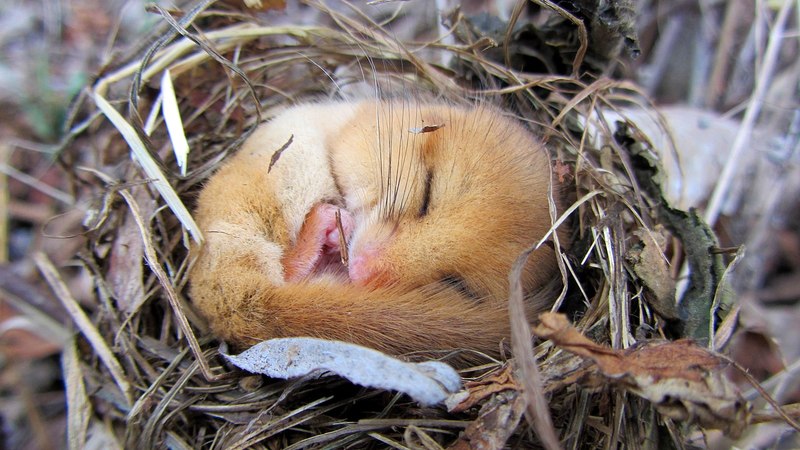Which animals hibernate?
Many different kinds of animals hibernate, from mammals and reptiles to amphibians and even some insects.
Bears are well known for hibernating, but they only do so if they live in a cold climate. Bears that live in warmer climates, such as the sun bears of South East Asia have access to plenty of food all year round, so they don’t need to hibernate.

[photo; Zoë Helene Kindermann]
In the UK, only three mammals truly hibernate by sleeping right through the winter. Hedgehogs, bats and dormice hibernate from October or November each year right the way through to April or May the next year. Many people think that squirrels hibernate, but they are actually not capable of putting on enough body fat to survive all winter without eating. Squirrels prepare for the winter by hiding food through the Autumn months, so they can eat this during the colder months. They are very good at remembering where they have hoarded their food!
Some types of tortoise hibernate, including those kept as pets. Even though the temperatures inside a house might be warm, it can be very bad for a tortoise that is a hibernating species to be kept awake during the winter season.
Some fish, frogs and turtles, which have no way to keep warm during winter, shelter under logs, rocks and fallen leaves in the water. As the weather gets colder, they move down to the bottom of lakes and ponds and some even burrow into the mud.
Some insects, such as bees also hibernate. Huddling honey bees huddle close together in their hive to stay warm, whereas burrowing bumblebees dig a tunnel in the ground and crawl inside through the winter.
Why not carry out some research to find out some more animals that hibernate during the winter?
Read More: How can you Help Hibernating Animals in the Winter?
